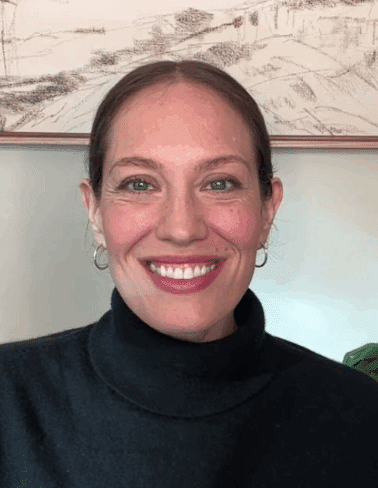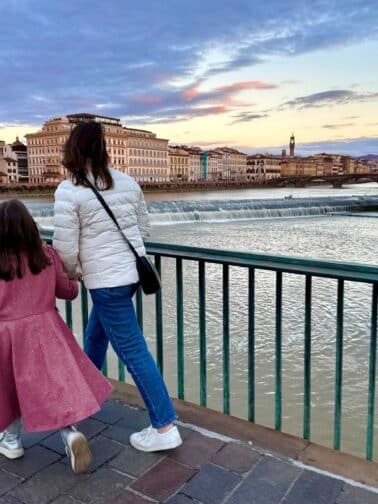TL;DR –Parental privilege—the unrecognized advantages of having functional, resourced parents who provide down payments, free childcare, emotional support, career guidance, and inheritance—creates specific pain for those navigating upward mobility from relational trauma backgrounds. When peers casually mention calling mom for comfort, having grandparents babysit, or relying on family financial safety nets, it rekinddles grief about abstract losses: the childhood never had, the guidance never received, the twice-as-hard work required for half the resources. While others unconsciously lean on parental scaffolding, you're simultaneously paying for therapy (proxy parenting), vetted babysitters (because grandparents aren't safe), and financial advisors (because no one taught you about 401Ks)—all while working twice as long to save for what others receive as gifts.
This pain deserves acknowledgment and feeling—it's legitimate grief over real disparities that profoundly impact your journey. Yet balance comes through cognitive reframing: recognizing what being truly self-made says about your capacities, finding community with others who understand the absence of parental privilege, and honoring that you're creating for your children what you never received. The grief may resurface whenever privilege appears, but so can pride in breaking cycles without the safety nets others take for granted.
“Oh we could have never afforded a home in Berkeley if our parents hadn’t given us the down payment!”
“Yeah, both sets of grandparents live about 30 minutes away and they take turns watching the baby every weekend so we can go out on date nights.”
“I remember when I got my first job. My dad taught me how to negotiate my salary, set up my 401K, and make my first budget.”
“My mom is my best friend. Whenever hard things happen, I call her first.”
“Sure, I try and save. But I also know my parents are leaving my sisters and me a pretty hefty inheritance. So I prefer to spend my money on travel right now. You only live once, right?”
Each and every one of these statements is an honest-to-goodness comment I’ve had an acquaintance from my life say to me over the last five years.
And each and every one of these statements is an example of the parental privilege so many people who don’t come from relational trauma backgrounds hold and yet don’t often recognize.
Each and every one of these statements can be the sort of comment that can create pain, jealousy, and resentment. For those of us who do come from relational trauma backgrounds. Who are, very specifically, upwardly mobile and attempting to be a kind of first in our family. First to go to college, first to break the poverty cycle. To hold a professional job and navigate middle-class structures and systems. First to consciously and ardently attempt to raise our children in a non-traumatizing way, etc.
I wanted to shine a light on this specific experience when we hear comments like these.
It’s one of those “stings” that so many of us encounter on our relational trauma recovery journeys. Especially when we see others with parental privilege.
A reminder and a rekindling of grief and frustration that we ourselves don’t necessarily have the privilege of functional, healthy, devoted, and resourced parents and guardians to turn to when life gets hard, confusing, or complex.
Instead, many of us could never even dream of letting our children have a sleepover at their grandparents’ house.
We have legitimate concerns about their physical and emotional safety.
In contrast, many of us have to work twice as hard for twice as long to save up pennies for a downpayment. (And that’s after we pay back the student loans we took out because goodness knows that wasn’t paid for.)
Instead of being able to turn to a parent and get exactly the emotional salve we need, we often get the opposite (if not the total absence) of what we needed.
Rather than being able to rely on grandparents for babysitting or a savvy parent to help guide us through making good financial decisions, we pay for our community and our supports. A vetted babysitter, a financial planner, and a trusted, safe therapist.
I want to acknowledge that you, like me, are upwardly mobile and on a relational trauma recovery journey. These kinds of contrast experiences with parental privilege can sometimes (okay, often) feel painful.
It’s normal and natural.
It’s normal and natural to imagine how much easier life would be if you did have healthy, functional parents to rely on for emotional, logistical, and financial support.
Curious if you come from a relational trauma background?
Take this 5-minute, 25-question quiz to find out — and learn what to do next if you do.
START THE QUIZIt’s normal and natural to feel jealous, angry, and resentful of your peers for having what you do not and never will have (and them not even being aware of what an incredible privilege it is that they have this).
It’s normal and natural to also feel your jealousy and frustration re-kindled when you’re then able to provide this for your own child, working unbelievably hard so that they will have a sounder platform than you have and yet sometimes even feeling frustrated about how they, too, will probably one day take their privilege for granted.
It’s normal and natural to feel the pain of peer parental privilege on your upwardly mobile relational trauma recovery journey and you encounter others who had and have such incredibly different experiences, resources, and assets than you yourself do.
I know this pain of parental peer privilege well myself.
And, inevitably, so do the bulk of my clients.
And the question almost always comes up – for me and for them – what do I do with this pain?
Am I just supposed to feel it?
Yes, honey. You are supposed to feel it. It’s a legitimate and important emotion that’s being evoked (again).
One of the best ways we can support ourselves on our relational trauma recovery journeys is to allow ourselves permission to grieve the abstract losses of our life for as long as it takes.
The abstract loss of a never-had childhood.
The abstract loss of never knowing what devoted, kind love from a father feels like.
The abstract loss of choices not made because you didn’t have the emotional capacity or the adult guidance to help you make them at age-appropriate times.
The abstract loss of experiencing, again and again, how much easier adulting would feel if you had loving, loyal, functional, and resourced parents to turn to.
The pain of parental peer privilege evokes those abstract losses.
And so, importantly, you must allow yourself to feel the anger, grief, and all other attendant feelings that come up when you’re triggered.
Doing so – letting yourself actually feel your feelings – sends a message to the child inside of you that his/her/their feelings matter.
That they get to feel sad and angry. And that it’s okay.
You give yourself a reparative re-parenting experience when you allow yourself to actually acknowledge how upset it makes you that your peers who you now move in social circles with have so much more than you have.
“That’s great, Annie, but it also doesn’t feel good to feel angry and sad all the time.”
This is another literal comment I get. And I get it.
And so I do think there is a balance between feeling our feelings and also employing cognitive tools to frame our thoughts, create more flexibility in our thinking, and shift us into different feeling states.
Processing Parental Privilege Pain in Therapy
The triggering experience of witnessing parental privilege while navigating your own relational trauma recovery requires specific therapeutic attention to both validate the legitimate grief and prevent bitter stagnation. A trauma-informed therapist understands that each casual mention of parental support—the down payment gift, the free babysitting, the emergency phone call to mom—reopens wounds about abstract losses that can never be recovered.
Through therapy, you explore how yes, sweetheart, after all this time you still get to grieve this, recognizing that grief about never-had resources isn’t weakness or ingratitude but honest acknowledgment of genuine disadvantage that shapes every aspect of your upward mobility journey.
Your therapist helps you hold the both/and: feeling pride in being genuinely self-made while grieving the exhaustion of creating everything from scratch, celebrating breaking cycles while acknowledging the cost of having no safety net, supporting your children’s security while mourning your own absent foundation.
Together, you develop responses to privilege-assuming comments that maintain boundaries without trauma-dumping, learn to differentiate between people who deserve explanation versus those who’ll never understand, and practice sitting with triggered feelings without either minimizing them or drowning in comparison.
Most importantly, therapy provides the consistent relational resource you’re literally paying for because parental support isn’t available—not as consolation prize but as chosen, boundaried support that models what healthy dependency looks like. Your therapist witnesses the extraordinary capacity required to build middle-class stability from poverty, to parent consciously without models, to navigate professional systems without guidance—accomplishments that peers with parental privilege literally cannot fathom because they’ve never had to develop such resilience.
Through this witnessing, you internalize recognition that your slower progress isn’t failure but evidence of the extra weight you carry, transforming resentment into fierce pride in being living proof that cycles can be broken even without the scaffolding others unconsciously lean upon.
Two of the tools I like to use when the pain of parental peer privilege is evoked for me include:
- Reframing what it says about me and my capacities given how far I’ve come and that I did it without parental privilege. Very few people get to truly wear the label of self-made or cycle breaker.
- Getting in touch with and/or exposing myself to others who can relate to the experience of not having parental privilege so that my experience feels normalized and validated. (Hint: if you don’t have this in your therapist or your friend group, look for digital companions in the comments of my blog, or in the pages of extraordinary memoirs.)
Generally, employing both of these tools can help shift my thinking and my experience to a more grounded, empowered and validated state (but, again, I do always validate the painful feelings I feel first).
I’d like to remind you that when the pain of parental peer privilege is evoked for you – by the comments of people in your life, by thoughts of abstract others, or even those you see from afar or on TV – your grief about your own family (or lack thereof) may be evoked.
And that’s okay.
Here’s to healing relational trauma and creating thriving lives on solid foundations.
Warmly,
Annie





